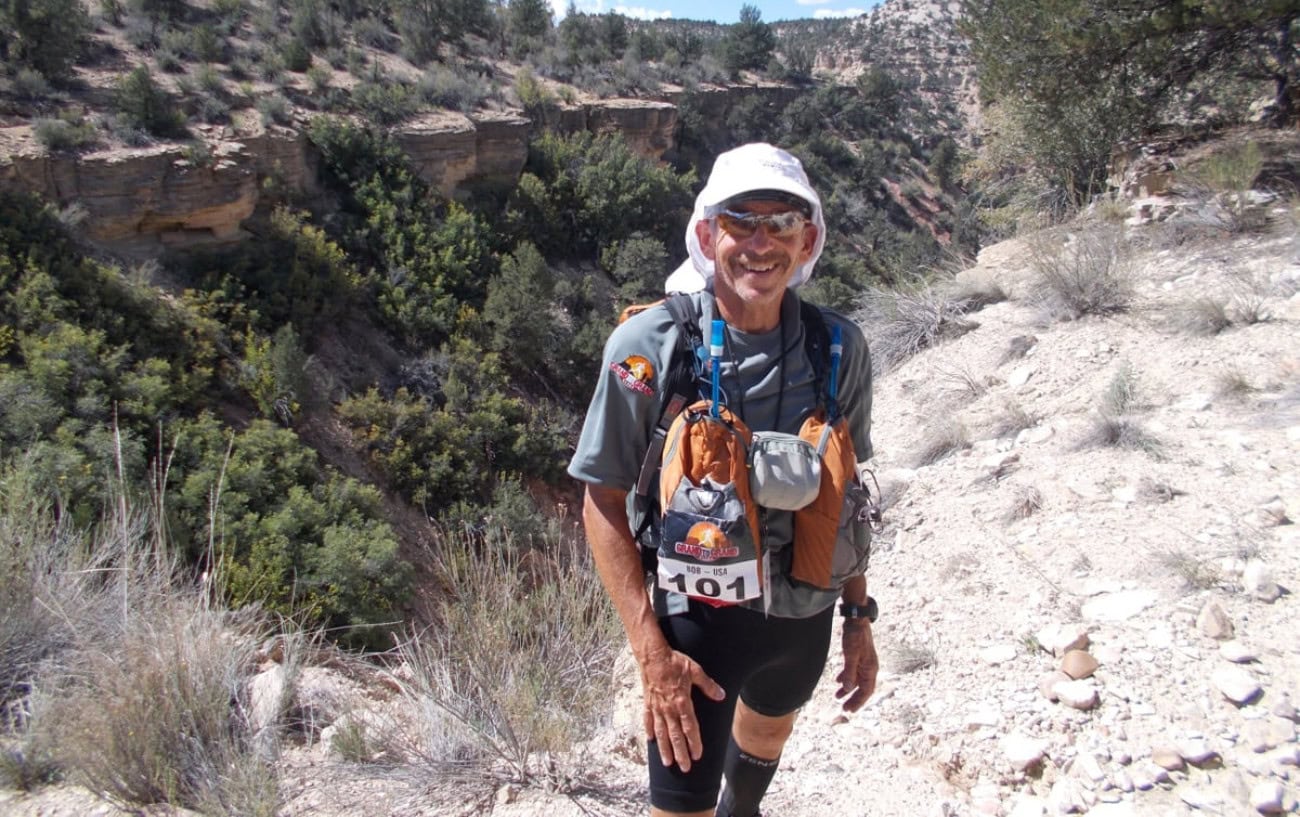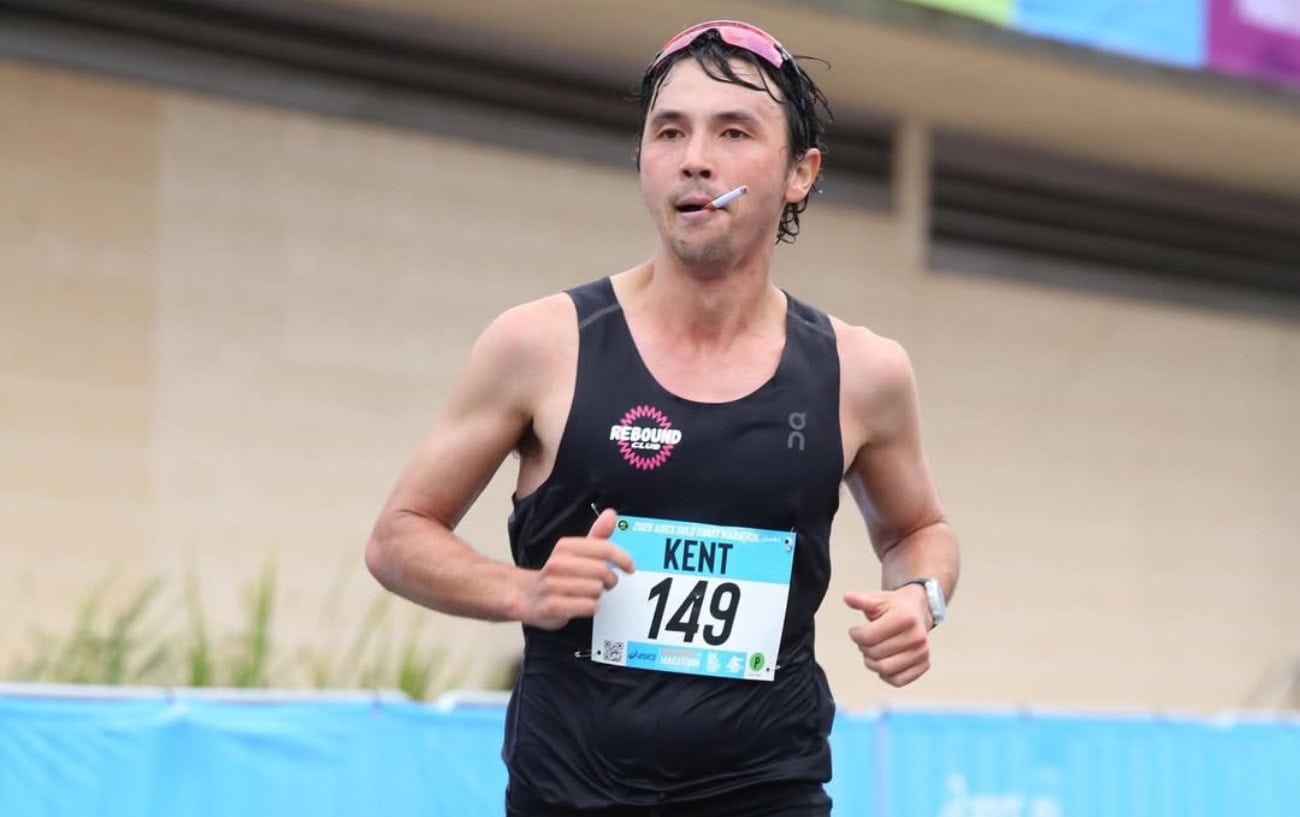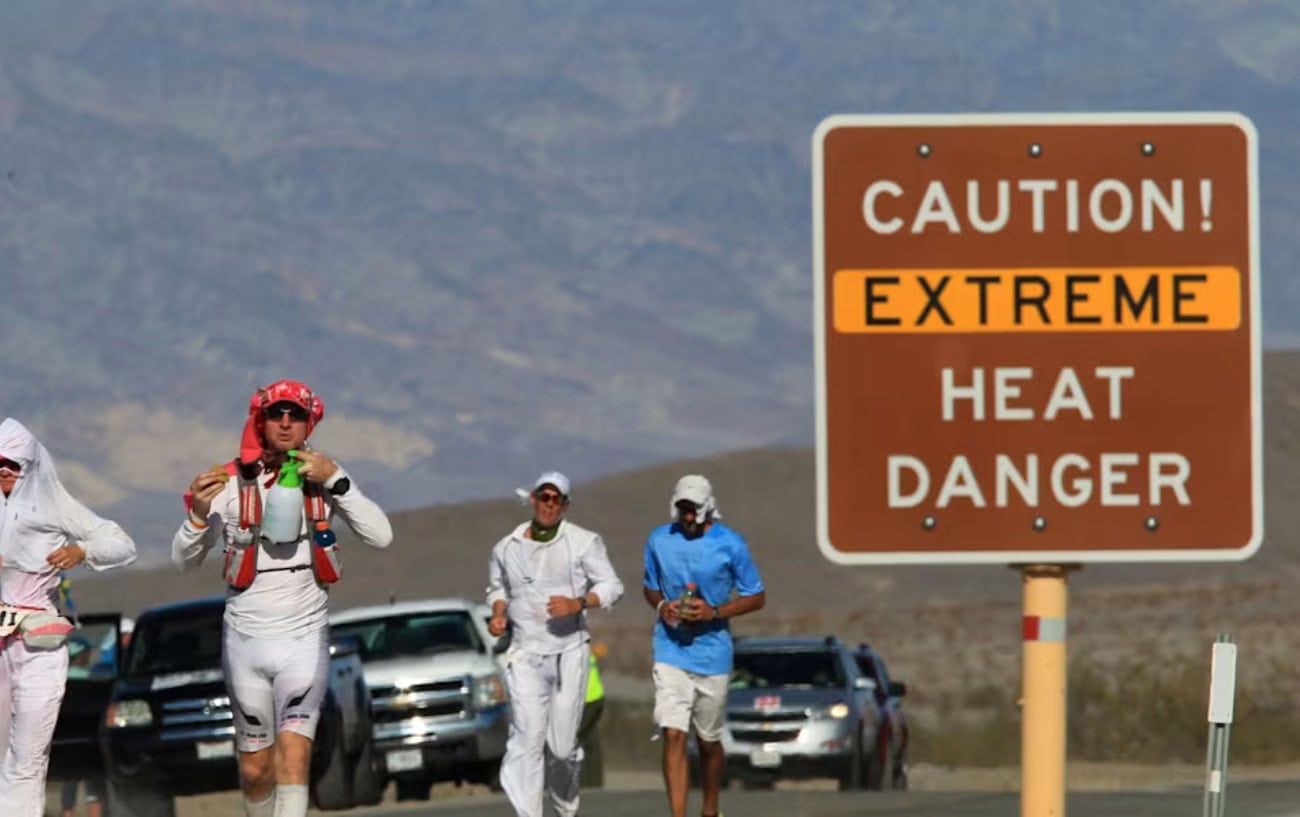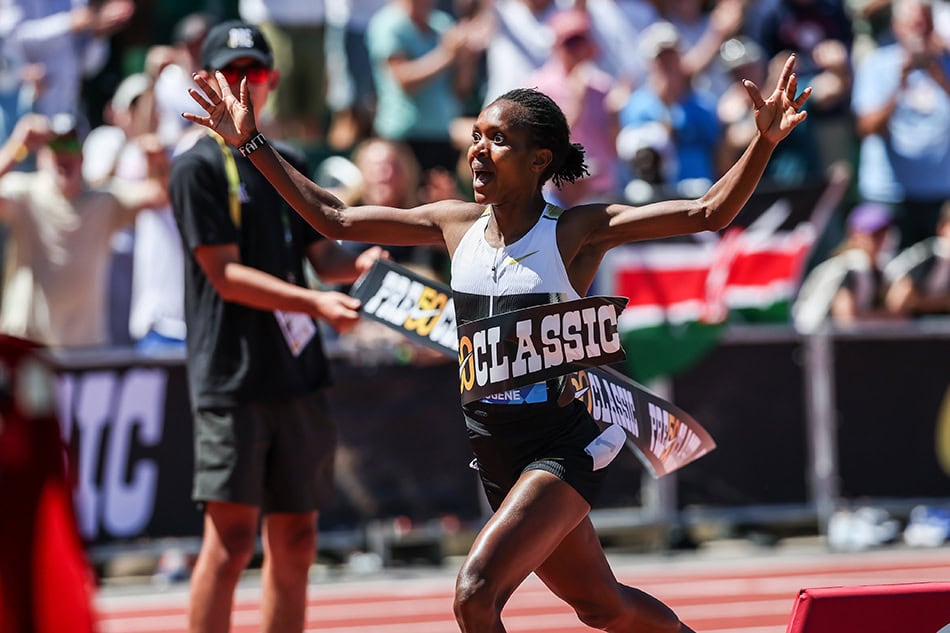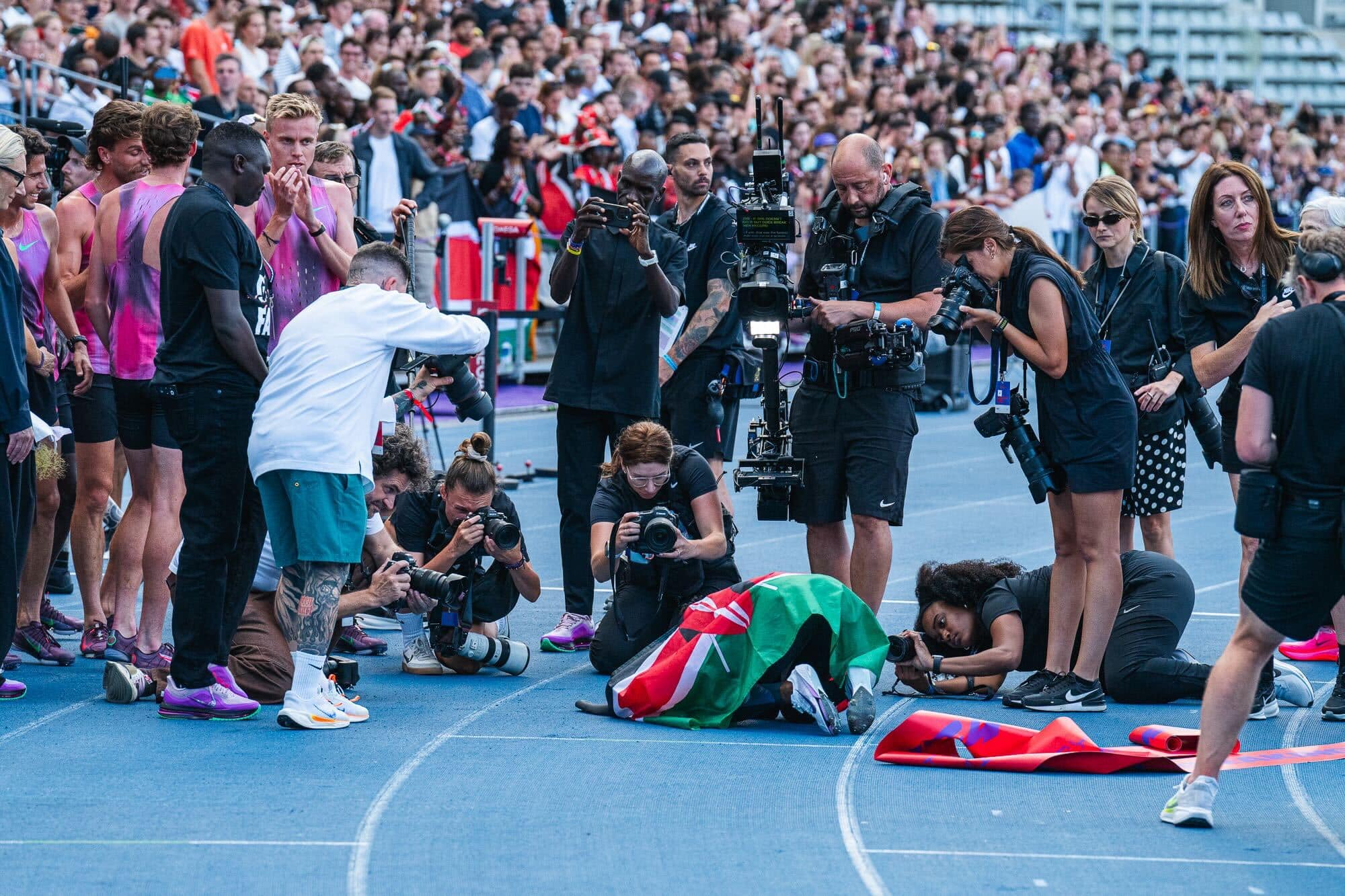BYU graduates Conner Mantz and Clayton Young are entering the Paris Olympic marathon at the peak of their powers, guided by their longtime college coach, Ed Eyestone.
Eyestone, a former Olympian who competed in the 1988 and 1992 Games, has spent over 25 years crafting his unique marathon training program at Brigham Young University.
The recent success of his athletes, who recorded the two fastest American marathon times of 2023 and secured their spots in the Paris Olympics, highlights Eyestone’s innovative coaching strategies.
His coaching approach, which blends the physical and psychological demands of marathon training, has proven pivotal in preparing his runners for the highest level of competition.
Here, he shares with us the inside scoop on his successful marathon training philosophy.

Can you describe the key elements of your marathon-training philosophy?
Ed Eyestone: It’s pretty simple. The number one thing marathon runners should focus on is getting to the starting line healthy. In the marathon, you’re only as strong as your weakest link. If you’ve overdone something in your training, it tends to come undone at some point over 26 miles.
What I’ve found through the years is that it’s smarter to under-do the training than over-do it. Let’s get to the starting line healthy and as fresh as we can be. Let’s be healthy so we can run our best on race day.
Running partners can be really important in marathon training. How are Conner Mantz and Clayton Young similar and different? How do you meld them together?
EE: First, they’re both really happy that the other made the Olympics because otherwise, one might be training alone, and there’s no fun in that.
Conner likes to push, to lead. He always wants to be “in the room where it happens,” to borrow from Hamilton, the musical. That’s why you see him up front often in races. It’s not always the best approach, but it’s something we really love about Conner. He’s willing to stretch himself to see if he can make the jump to the next level.
He’s learning that he can have his cake and eat it, too. He can go out with the front group without having to be in the front. He can hide away and let the group carry him along.
Clayton is the engineer. Actually, they’re both engineers by profession, but Clayton breaks things down a little more. If they’re running a hard pace in training, he’s the one who might be thinking, “Okay, this is really fast, so maybe I should be careful not to push too hard.”
You saw what Clayton did with his water bottle in Orlando, and you can be sure he’s been thinking a lot about Paris—the possible heat and the best way to deal with it. He uses his engineering mind to find ways to perform his best while following all the rules.
Do you have any key workouts you repeat a few times during your marathon buildups?
EE: We like to do a PMP run every couple of weeks. That stands for “Predicted Marathon Pace.” We’ll start with an eight-miler, then bump up to 10 miles, and at the top do 12 miles. We’re running these at a bit of altitude in Provo, Utah [about 4500 feet], so the actual effort is probably 4 or 5 seconds per mile faster than marathon pace.
If we do 12 miles at PMP, that’s a pretty big test. Then, in the last month, we’ll drop back down to 10 miles and 8 miles. I think these PMPs give you a boost of confidence, physiologically and psychologically. They tell you, “Hey, I’m ready to hold the pace I’ll need on race day.”
You seem to enjoy creating simple sayings or axioms for your runners. Do you have a couple of favorites?
EE: At the Trials, I told Conner and Clayton that we should focus on the 3 C’s: chill, cover, compete. They did that so perfectly that I was able to add a fourth C afterward: celebrate.
I have another expression that I like a lot: C2 = E2. Sometimes I’ve even put it on T-shirts. I know, that’s a little hokey.
This expression is meant to emphasize the importance of consistency in training. The full meaning is “Competency in training that’s applied Consistently leads to Eventual Excellence.”
Consistency means you’re getting the work done day after day after month after year. Excellence is a relative term. It doesn’t have to mean that you’re going to the Olympics. It can mean that you’re aiming to break 4 hours or 5 hours.
To become excellent, you’ve got to fill in the groundwork: the weekly mileage, the long runs, the tempo runs. I like to tickle 5K pace and 10K pace with track sessions too. I’ve always felt that the track work makes your marathon pace feel so much easier physically and psychologically on race day. Finally, you’ve got to build in enough recovery.
Conner Mantz and Clayton Young will compete in the men’s Olympic Marathon this Saturday, August 10, at 2:00 a.m. Eastern time. Follow our complete Olympic coverage here.


